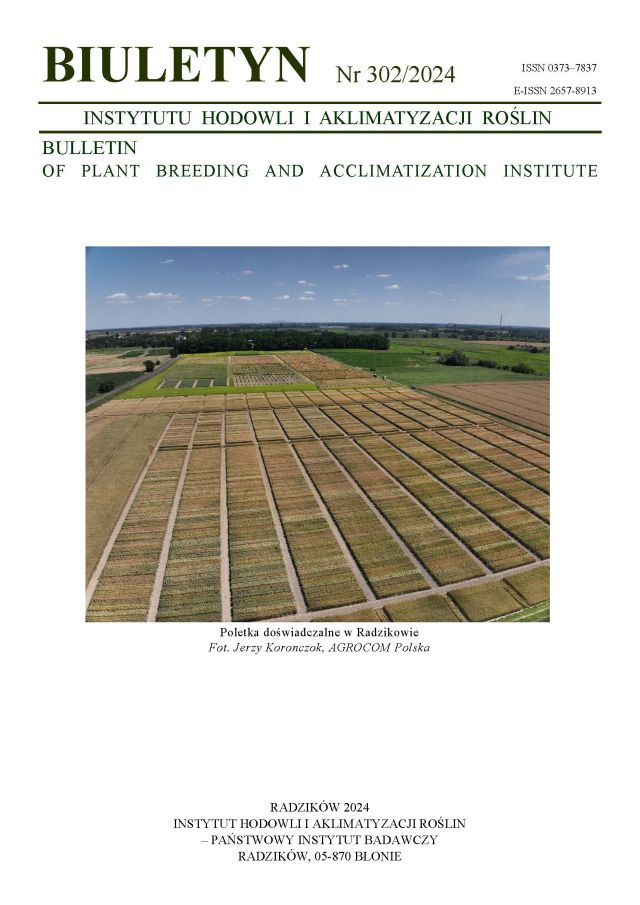Polski handel zagraniczny ziemniakami i przetworami ziemniaczanymi po integracji z Unią Europejską
Wiesław Dzwonkowski
ierigz@ierigz.waw.plInstytut Ekonomiki Rolnictwa i Gospodarki Żywnościowej — Państwowy Instytut Badawczy w Warszawie (Poland)
Abstrakt
Akcesja Polski do UE zmieniła ekonomiczne uwarunkowania polskiego rolnictwa, jak również handlu artykułami rolno-spożywczymi. W wyniku integracji nastąpiło zniesienie w obrotach z innymi państwami członkowskimi ceł oraz wszystkich innych środków, mogących zakłócać swobodny handel produktami rolno-żywnościowymi na obszarze poszerzonej Wspólnoty. Polska uzyskała swobodny dostęp do rynku ok. 450 mln konsumentów, otwierając jednocześnie polski rynek. Przeprowadzona analiza ma na celu przybliżenie podstawowych skutków integracji w handlu zagranicznym ziemniakami i przetworami ziemniaczanymi. Bezpośrednim skutkiem akcesji i otwarcia rynku jest znaczący wzrost importu przetworów ziemniaczanych, w tym przede wszystkim produktów skrobiowych. W pierwszym roku po akcesji bardzo istotnie zwiększył się również przywóz ziemniaków nieprzetworzonych. Po stronie eksportu nastąpił również wzrost obrotów, ale skala przyrostu nie była aż tak znacząca. Natomiast niepokojąco obniżyła się sprzedaż na rynki zagraniczne ziemniaków do bezpośredniej konsumpcji. W konsekwencji w pierwszym roku po akcesji nastąpiło wyraźne pogorszenie bilansu w obrotach handlu zagranicznego ziemniakami i ich przetworami. W sezonie 2005/06 nastąpiła poprawa sytuacji w handlu zagranicznym produktami sektora ziemniaczanego. Z punktu widzenia dłuższej perspektywy integracja z UE niesie w tym zakresie jednak więcej szans niż zagrożeń, co będzie w najbliższych latach skutkować przede wszystkim wzrostem eksportu przetworów ziemniaczanych, a w konsekwencji poprawą bilansu obrotów handlowych w tym sektorze.
Słowa kluczowe:
akcesja, eksport, import, ziemniaki, przetwory ziemniaczaneBibliografia
Dzwonkowski W., Bochińska E., Chotkowski J., Rembeza J., Rosiak E., Szczepaniak I. 2006. Rynek Ziemniaka. Stan i perspektywy. Raport Rynkowy nr 29, IERiGŻ – PIB, Warszawa.
Google Scholar
Dzwonkowski W. 2005. Rynek ziemniaków 2005 r. W: Podstawowe rynki rolne w pierwszym roku po integracji Polski z Unią Europejską. Jadwiga Seremak-Bulge i Janusz Rowiński (red.), IERiGŻ — PIB, Warszawa.
Google Scholar
Dzwonkowski W. 2003. Dostosowanie polskiego rynku ziemniaków do wymogów Unii Europejskiej w „Dostosowywanie polskiego rynku rolnego do wymogów Unii Europejskiej” ARR, SGH, IERiGŻ, Warszawa.
Google Scholar
Dzwonkowski W. 2002. Uwarunkowania eksportu ziemniaków i ich przetworów. W: Ekonomika i technologia produkcji ziemniaków jadalnych. Jacek Chotkowski (red.), Wydaw. Wieś Jutra, Warszawa: 29 — 39.
Google Scholar
Dzwonkowski W. 2001. Dynamika zmian w eksporcie sektora ziemniaczanego w ostatnich latach, Materiały konferencyjne z Ogólnopolskiego Forum Producentów i Przetwórców Ziemniaka, Jadwisin 7–8 marca 2001 r.: 43 — 53.
Google Scholar
Dzwonkowski W. 1999. Analiza zagrożeń dla rynku ziemniaków związanych z przejęciem przez Polskę zewnętrznej taryfy UE, ekspertyza wykonana na zlecenie MRiGŻ, Warszawa.
Google Scholar
Seremak-Bulge J., Rowiński J. 2005. Podstawowe rynki rolne w pierwszym roku po integracji Polski z Unią Europejską. IERiGŻ — PIB, Warszawa.
Google Scholar
Autorzy
Wiesław Dzwonkowskiierigz@ierigz.waw.pl
Instytut Ekonomiki Rolnictwa i Gospodarki Żywnościowej — Państwowy Instytut Badawczy w Warszawie Poland
Statystyki
Abstract views: 64PDF downloads: 52
Licencja
Prawa autorskie (c) 2006 Wiesław Dzwonkowski

Utwór dostępny jest na licencji Creative Commons Uznanie autorstwa – Na tych samych warunkach 4.0 Miedzynarodowe.
Z chwilą przekazania artykułu, Autorzy udzielają Wydawcy niewyłącznej i nieodpłatnej licencji na korzystanie z artykułu przez czas nieokreślony na terytorium całego świata na następujących polach eksploatacji:
- Wytwarzanie i zwielokrotnianie określoną techniką egzemplarzy artykułu, w tym techniką drukarską oraz techniką cyfrową.
- Wprowadzanie do obrotu, użyczenie lub najem oryginału albo egzemplarzy artykułu.
- Publiczne wykonanie, wystawienie, wyświetlenie, odtworzenie oraz nadawanie i reemitowanie, a także publiczne udostępnianie artykułu w taki sposób, aby każdy mógł mieć do niego dostęp w miejscu i w czasie przez siebie wybranym.
- Włączenie artykułu w skład utworu zbiorowego.
- Wprowadzanie artykułu w postaci elektronicznej na platformy elektroniczne lub inne wprowadzanie artykułu w postaci elektronicznej do Internetu, lub innej sieci.
- Rozpowszechnianie artykułu w postaci elektronicznej w internecie lub innej sieci, w pracy zbiorowej jak również samodzielnie.
- Udostępnianie artykułu w wersji elektronicznej w taki sposób, by każdy mógł mieć do niego dostęp w miejscu i czasie przez siebie wybranym, w szczególności za pośrednictwem Internetu.
Autorzy poprzez przesłanie wniosku o publikację:
- Wyrażają zgodę na publikację artykułu w czasopiśmie,
- Wyrażają zgodę na nadanie publikacji DOI (Digital Object Identifier),
- Zobowiązują się do przestrzegania kodeksu etycznego wydawnictwa zgodnego z wytycznymi Komitetu do spraw Etyki Publikacyjnej COPE (ang. Committee on Publication Ethics), (http://ihar.edu.pl/biblioteka_i_wydawnictwa.php),
- Wyrażają zgodę na udostępniane artykułu w formie elektronicznej na mocy licencji CC BY-SA 4.0, w otwartym dostępie (open access),
- Wyrażają zgodę na wysyłanie metadanych artykułu do komercyjnych i niekomercyjnych baz danych indeksujących czasopisma.
Inne teksty tego samego autora
- Wiesław Dzwonkowski, Perspektywy rynku skrobi i produkcji ziemniaków skrobiowych w kontekście zmian Wspólnej Polityki Rolnej , Biuletyn Instytutu Hodowli i Aklimatyzacji Roślin: Nr 265 (2012): Wydanie regularne














